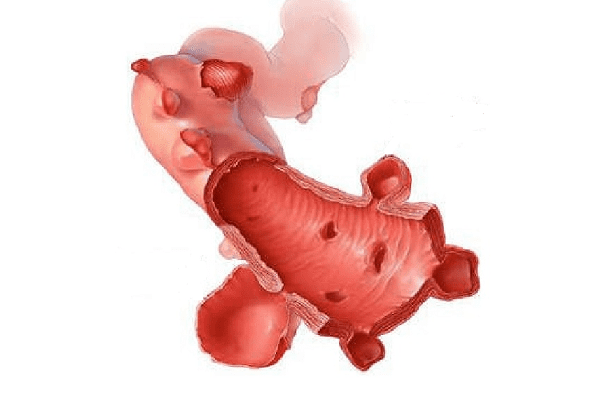Medicine questions >>>> Diverticulum - what is it?
Diverticulum - what is it?

A diverticulum is a bulging of the walls of a tubular or hollow organ. Most often, a diverticulum forms in the walls of the esophagus, intestines, ureter, and bladder. Diverticula are congenital and acquired.
The formation of diverticula is based on trauma of smooth muscles, which forms the walls of hollow and tubular organs, associated with an increase in intraluminal pressure on the mucous and muscle layer from the side of the passage of the food bolus (in the case of esophageal diverticulum), food and feces (in cases of intestinal diverticula), untimely emptying the bladder or passing stones through the bladder or ureter (in cases of bladder or ureteral diverticula).
Diverticula are dangerous in that the elements that fall into their lumens and linger there cause inflammatory and purulent processes, can provoke organ obstruction, and can also cause bleeding and perforation of the walls of a tubular or hollow organ.
The presence of a diverticulum is diagnosed by conducting an ultrasound scan of an organ (esophagus, intestines, bladder, ureter, etc.), which makes it possible to clarify the location of the diverticulum, its true size, number (diverticula can be plural - diverticulosis disease) and decide on treatment.
Treatment of a diverticulum is carried out by surgical excision of the diverticulum and suturing of the place of its formation - the wall of a hollow or tubular organ. Modern endoscopic methods of diverticulum excision surgery are minimally invasive and allow surgical intervention without additional complications, followed by rapid healing of the walls of the affected organ.

Read

Read



























